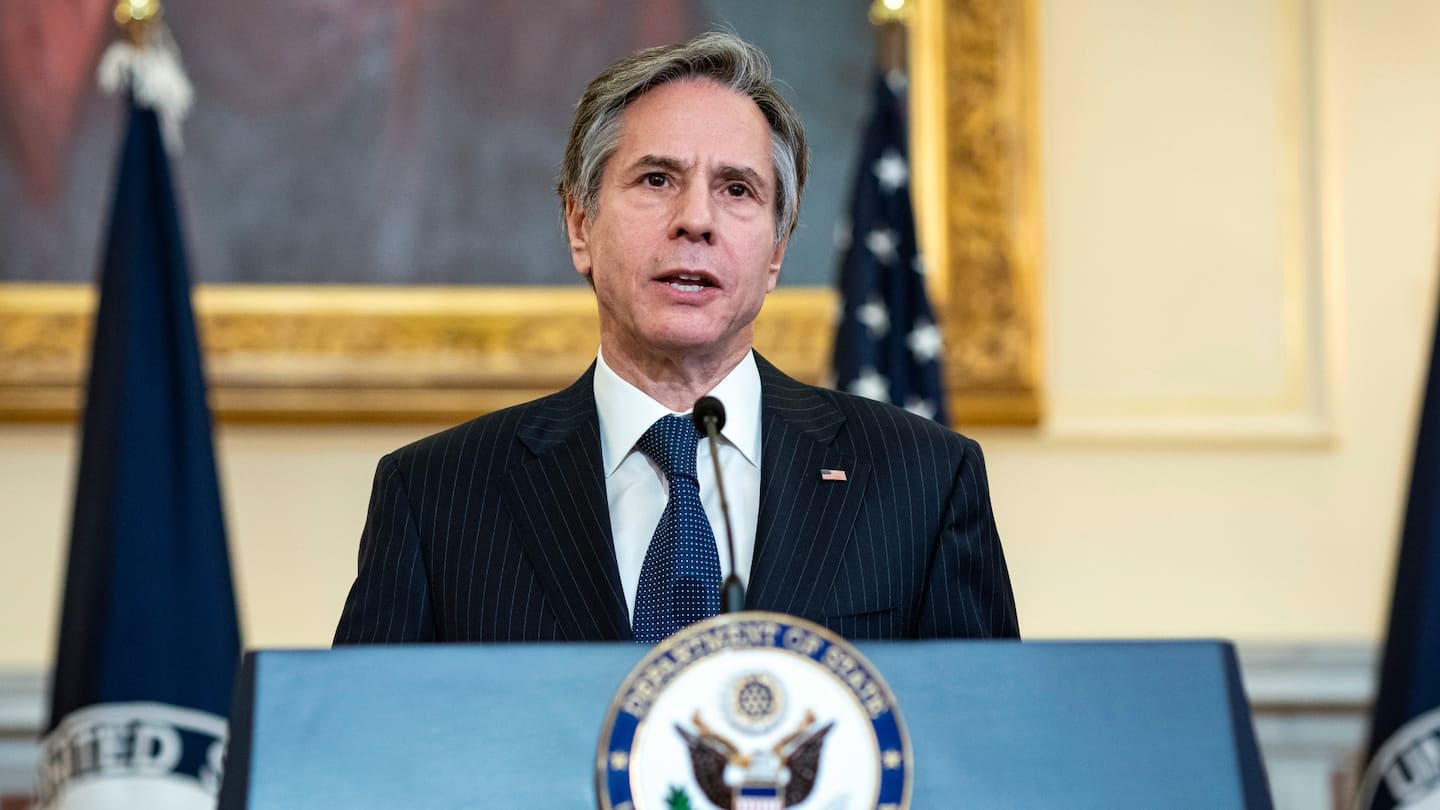Biden’s top diplomat makes unannounced stop in Afghanistan after president calls for troop withdrawal

Blinken’s trip follows the decision by President Biden on Wednesday to bring all remaining 2,500 U.S. troops home and end a conflict that has bedeviled his predecessors for the past two decades.
Despite their long-standing concerns about a U.S. departure, Afghanistan’s leaders publicly embraced Biden’s decision and thanked officials for their coordination ahead of the announcement. In a meeting room in Kabul’s ornate presidential palace, Ghani told Blinken, “We respect [President Biden’s] decision and are adjusting our priorities.” In his meeting with Abdullah, the chairman said the withdrawal merely represented a new “chapter” in the U.S.-Afghan relationship.
Blinken said he “wanted to demonstrate with my visit the ongoing commitment of the United States to the Islamic Republic and the people of Afghanistan.”
“The partnership is changing but the partnership itself is enduring,” he said.
Looming behind every discussion in Afghanistan is the specter of a possible Taliban takeover of Kabul following the U.S. departure in the fall.
For years, the United States tried and failed to apply military and political pressure in Afghanistan in hopes of persuading the Taliban to forge a resolution with the U.S.-backed Afghan government. With few options left, U.S. officials hope that a decisive withdrawal may jump-start the peace process rather than push the country further into violence as some have forecast.
The meeting with Afghan officials face-to-face won’t be easy, said analysts.
“No matter how you slice it, the withdrawal announcement will be hard for many Afghans to accept. There’s no way to sugarcoat a policy decision that’s quite likely to worsen instability in a country that has been at war for 40 years,” said Michael Kugelman, an Afghan scholar at the Wilson Center.
“U.S. officials’ best bet is to assure Kabul and the Afghan people that a military withdrawal does not equate to a total abandonment,” he added.
That’s precisely the message a senior State Department official said would be conveyed.
“The American commitment is strong; we’re ending our direct military role, but that doesn’t mean we’re ending our relationship,” the official said.
Following his meetings with Ghani and Abdullah, Blinken met with members of Afghan civil society, including journalists, a member of parliament and women’s rights leaders who stand to be affected by the U.S. departure. While waiting for Blinken to arrive, Afghanistan member of parliament Naheed Farid expressed concern about the future of her country. “My views are very pessimistic,” she said, without elaborating.
Ahead of the meeting, the State Department official acknowledged that the civil society leaders “will be apprehensive about what will change” as U.S. and NATO forces exit the country.
“Already they’re in a challenging position,” said the official, who spoke on the condition of anonymity to discuss the sensitive political situation. “There’s a war going on right now. There have been targeted killings in the past month or so. Some of [the killings] done by the Taliban, some of them by done by the [Islamic State].”
The stop in Afghanistan is an important step in what the Biden administration is calling a responsible winding down of the conflict. Blinken flew to Afghanistan from Brussels, where he and Defense Secretary Lloyd Austin made the case to European and Canadian allies that it was time to bring the 10,000-strong NATO mission to a close, a pitch that garnered unanimous support from the 30-member military alliance.
In remarks at NATO headquarters, Blinken and Austin said the United States will continue to pay the salaries of Afghan security forces, help them maintain counterterrorism capabilities and provide significant humanitarian and economic assistance to the country.
“We’ll continue support for the rights of Afghan women and girls, minorities advocating for their meaningful participation in the ongoing negotiations and their equal representation throughout society, and we’ll maintain significant humanitarian assistance to those in need,” Blinken said.
During a press conference in Kabul, Blinken was asked how the United States will avoid a redux of the late 1980s, when the West largely forgot about Afghanistan following the Soviet Union’s withdrawal.
Blinken said the difference is the U.S. will not forget, and he reiterated his vow to provide “support” to the Afghan military and civil society while applying diplomatic pressure to bring countries in the region together to “advance peace.”
While Afghanistan’s leaders put a positive spin on the U.S. decision, Blinken, too, glowingly praised the economic and cultural progress in Afghanistan in recent years despite its crippling poverty, endemic corruption and recurring violence. In a meeting with U.S. soldiers at the U.S. Embassy in Kabul, Blinken noted their achievements. “What you and your predecessors did over the last 20 years is really extraordinary,” he said.
A key challenge for U.S. officials has been trying to midwife peace talks between the Taliban and the U.S.-backed Afghan government. The stalemated discussions are supposed to resume in coming days in Istanbul.
The Biden administration’s decision to withdraw prompted immediate criticism from Republican leaders, including Senate Minority Leader Mitch McConnell of Kentucky and Sen. Lindsey O. Graham of South Carolina, who argued that the U.S. would lose its leverage to force concessions from the Taliban.
Biden took on those criticisms in his speech on Wednesday, saying time has proved such arguments to be wrong. “I know there are many who will loudly insist that diplomacy cannot succeed without a robust U.S. military presence to stand as leverage,” Biden said. “We gave that argument a decade. It’s never proved effective — not when we had 98,000 troops in Afghanistan, and not when we were down to a few thousand.”
Read more:






